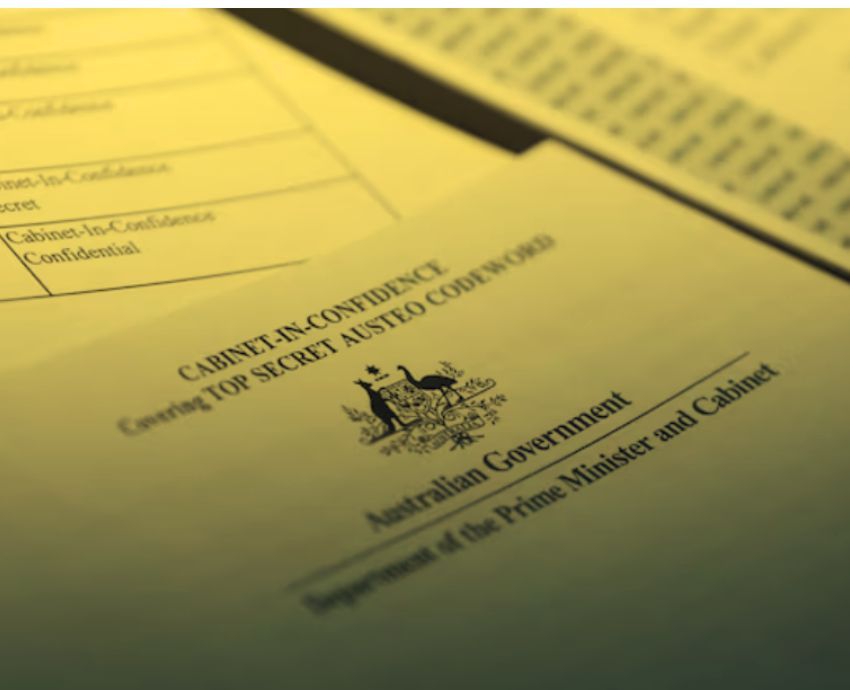
The National Archives of Australia on January 1 released a stash of cabinet documents, running into 240 from the John Howard government.
Particularly interesting was the focus on Australia’s criminal contribution to the war on Iraq in 2003. Even more interesting was how little the files said about the reasons for Australia’s commitment to the US-led invasion. Much of this was due to the omission of 78 records, that would otherwise have been in the original 2020 transfer to the archives.
The omission of the documents troubled Prime Minister Anthony Albanese, who subsequently ordered an inquiry. Dennis Richardson, former director of the Australian Secret Intelligence Organisation (ASIO) and former head of the Department of Foreign Affairs and Trade (DFAT), not to mention being on the government’s retainer as a consultant, was appointed as the inquiry’s chair.
In subsequent recommendations as to why the documents had been omitted, Richardson advanced the less-than-controversial thesis that the NAA include documents from the National Security Committee (NSC), a fixture of the Howard government.
On March 14, the Archives released certain NSC documents relevant to the Iraq invasion.
On January 10, 2003, Coalition Defence Minister Robert Hill, along with the Australian Defence Force (ADF) chief, identified the need to deploy some ADF personnel within a month “on the likely time-frame for possible military action against Iraq” as indicated by US Central Command.
The meeting also reveals that ADF forward units were already designated from a list agreed upon by the NSC on August 26 and December 4, 2002.
Howard, at the same meeting, promised that committing ADF forces required the consideration of all cabinet members. He also noted that he had “foreshadowed to the governor-general the general direction of steps under consideration by the government in relation to Iraq”.
But Peter Hollingworth, the then governor-general, was subsequently told by the PM that involving him in the decision to invade Iraq was needless; the ADF could be deployed under the provisions of the Defence Act.
A minute dated March 18, 2003, makes mention of the full cabinet’s authorisation of the invasion, though hardly anything else.
There is, however, a submission from the defence minister “circulated in the cabinet room on 17 and 18 March” intended to convince cabinet on possible military operations in Iraq.
In anticipation of a formal request to commit troops, the ADF had already been authorised to pursue “prudent contingency planning” on the matter.
The two stated war aims of Washington are outlined as: “regime change” and crippling Iraq’s “delivery of weapons of mass destruction (WMD)”.
The Howard government dawdled, slightly, on the issue of regime change admitting, ultimately, that “this may be a desirable, even inevitable, outcome of military action”.
The now infamous memorandum of advice authored by the first assistant secretaries of the Department of Foreign Affairs and Trade and the Attorney-General’s department was also made available.
The memorandum offers the shakiest of justifications for invading Iraq, also drawing from unsubstantiated reasons from their British counterparts.
It was subsequently and rightly excoriated by an irate Gavan Griffith, the then unconsulted Solicitor-General.
Not only were both bits of legal advice “entirely untenable”, they were also “arrant nonsense”, furnishing “no threads for military clothes”.
Nothing from President George W Bush’s remarks had revealed any desire “to clothe American action with the authority of the Security Council”.
Unilateral action seemed the order of the day.
For Griffith, certain omissions were almost unpardonable. Cautious experience had been elbowed out in favour of the gun.
The former head of the Office of International Law and a veteran authority Henry Burmester, later appointed Chief Counsel of the AG’s department, was not involved.
Nor, for that matter, was the now late James Crawford of Cambridge University, who commonly gave the Commonwealth advice on international law.
The latest documents from the NSC confirm that the parliamentary system, more than ever, should be involved in reining in the war makers.
In the meantime, drawing up an indictment for Howard to stand trial in the International Criminal Court is overdue. The same goes for a number of his cabinet. We would not want them to go stale before justice.
[Dr Binoy Kampmark currently lectures at RMIT University.]